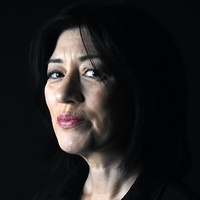How to survive being laid off
Prelude
Anupa Mistry is a writer and producer living in Toronto.
Conversation
How to survive being laid off
Being laid off can be a financial nightmare, but what isn’t talked about enough is the psychic toll it takes, and the decisions we make around work in the aftermath.
As told to Anupa Mistry, 1837 words.
Tags: Writing, Day jobs, Independence, Income, Mental health, Time management.
In the spring of 2018, I was laid off from a job as a creative producer at a music media start-up in New York City. I’d moved to the U.S. for the job from Toronto but, fortunately, was planning to transition back to my hometown anyway. My layoff came on the heels of major redundancy at a former employer, another NYC-based media organization. The swell of unemployment and dissolution that had started with print media in the early aughts and seeped into digital content over the last few years hit my personal social bubble hard. Over the next year and a half, I watched more layoffs impact some of my closest friends and admired colleagues.
Being laid off can be a financial nightmare, but what isn’t talked about enough is the psychic toll it takes, and the decisions we make around work in the aftermath. What I found interesting about the layoffs that surfaced in my world was how many of us were reacting to the change by deciding not to re-enter the workforce as salaried employees and instead taking time to discover passions, develop new habits, and process feelings in a way that was once incompatible with the routines of a workday.
It wasn’t a communal decision, but it somehow feels spiritually ordained to find yourself in a group of peers for whom precarious self-employment is more sensible than the emotional and physical toils of precarious full-time employment.
And there are ways to develop or resurrect new creative energy amidst the wreckage of a layoff. Whether you have to go back to work right away or have saved up enough money to buy yourself time to transition into an artistic practice, there’s opportunity within the change caused by a major rupture like being laid off. Here’s what worked for me.
Make things.
After graduating from journalism school in 2008, I started working right away as an editorial assistant at a beauty magazine and freelancing on the side. Writing about music and culture became a way for me to tell stories about people and their relationship to a place, but over the next decade that sense of purpose got lost in all of the rote tasks that come with being a full-time employee. As media transformed from the marketplace of ideas to the dollar bin of ideas, I lost confidence and my interest in storytelling, which had once felt like a vital vocation.
Being laid off, as well as relocating back to a smaller job market, forced me to confront this reality. I’d been writing and editing, as well as producing radio and video, within the confines and narrative vacuum of a media environment that remains firmly controlled by white men. Even as I fought hard to share my perspective, I’d still absorbed years of hearing that it wasn’t valid. No wonder my confidence was shot. I felt burnt out.
Before I left Toronto for New York, a good friend encouraged me to start a newsletter as a way to keep in touch with friends and a community of readers and colleagues. I’d demurred because I wasn’t sure anyone cared, I didn’t know how to monetize it, and because I was holding myself up to impossible standards of success. But in the aftermath of being laid off I thought about that encouragement and realized that I had never really made anything of my own—no blog, no zine, no party series. (Although I did curate a fun and connective series of arts mixers in the summer of 2015). I’m not really a DIY-er, but the ethos began to carry some appeal because it encouraged a kind of self-sufficiency that could offset the psychological devaluation that often accompanies being laid off.
My life isn’t short on inspiration, and I looked at some of the people who inspire me the most. Many of them were musician friends back in Toronto navigating the city’s lack of music industry infrastructure, the bureaucracy of grants, and the looming fatigue that comes with age—but who remained consistently in pursuit of their own creativity. I wanted to call them up and ask how they did it, and then I thought others might want to hear about that, too. So I decided to start a podcast called Burn Out, featuring short conversations about creative sustainability, with the lowest stakes I could muster without bailing out of fear and pressure. It would be self-produced, self-edited, ad-free, and released at the modest pace of once per quarter in batches of three episodes.
It was my first time making something, and I enjoyed the sense of agency it offered—a stark contrast to years of working within the strictures of organizations. I also eventually started that accompanying newsletter to share this new work, as well as some of the small revelations that “starting over” had enabled. Making things can happen at any stage in your life, and it is the easiest way to regain a sense of presence within your creative life.
Some questions you might ask yourself when considering what to make:
- How did I enjoy spending my time before the internet/smartphones/social media?
- What is my dream career; and what is the first tiny, baby step I can take toward that?
- What is the one thing I was never able to achieve in my professional life because I was told “no,” and how might I pursue that on my own?
Unpack your relationship with work.
Part of the reason that I think I’d never made anything and had reduced my career path to climbing a masthead was that I was always encouraged to work for others. As a kid, I experimented in the usual ways: crafting, mixtapes, home movies, dances, plays. But as an adult and emerging writer and journalist, self-publishing felt like more effort than it was worth—too risky—particularly around 2010, when optimism around digital platforms was quickly building. It made more sense to pay off my student loans and stack some bread as a writer, editor, or producer, by scaling the ladder of a traditional media organization.
Burning out and being laid off didn’t just hurl me into the ranks of the ultra-precariat. It forced me to confront exactly why I was so risk averse. The answer (as it is with our most pressing neuroses) had nothing to do with logic and everything to do with early childhood: I’d inherited my parents’ very immigrant aversion to risk, and unwavering faith in traditional pathways to success.
My father is hoping to retire this year after nearly 50 years of work as a machinist. His work has been steady, with only one very brief period of instability, and one major layoff from a large aerospace corporation. My mother has moved between various entry-level jobs in business administration since our family immigrated to Canada from the UK in the mid-‘80s. Neither of my parents has ever received a promotion in title or seniority in that time, but they have made steady money by working hard and staying the course.
An obnoxious trope about immigrants, particularly those who come from Asian countries, is of parents pushing their children to become doctors, lawyers, or engineers. This stereotype flattens immigrants to striver narratives, and erases the deep class divisions that exist within South and East Asian immigrant communities—both newly arrived, or diaspora-born. I wasn’t encouraged to pursue a career in the high-earner triumvirate, perhaps because my parents (like their parents before them) didn’t attend college.
I’ve been haunted by a curious phrase from the Haitian-American writer Edwidge Danticat’s 2011 essay collection/manifesto, Create Dangerously: The Immigrant Artist At Work. In it she writes, “And I imagine my father, one generation away from pulling that mule, saying that the only reason some of us are not also pulling mules is because we were lucky enough to get an education, because we are accidents of literacy.”
Accident, or not—there’s no reason I shouldn’t take risks. I don’t have a lot of money, but I have social privilege. I’m a woman and I have deep brown skin but I speak fluent, “unaccented” English. I’m a dual citizen of two Western countries (the UK by birth, and Canada through naturalization), have a university education, and a post-graduate certificate. And I’ve worked for multiple reputable media organizations, and built a large and robust network of friends and colleagues who support the work that I do.
Leaning into privilege feels new, but it is a way of coping with burnout and precarity—by learning to view myself as a change-agent instead of an accident, and by reckoning with the inherited financial/situational trauma from my childhood. I had no idea that my inability to see a nontraditional path for my work life was a result of the limited options for livelihood that were modeled for me as a young person. Whether it’s with the support of a therapist or through a daily journaling practice, understanding and unpacking your values around work can be beneficial during a period of professional transition.
Some questions to consider:
- Which of my needs are informed by desires that aren’t necessarily my own?
- What desires have I absorbed from my caregivers, or from culture?
- What professional desires or goals have I formed in reaction to fear?
Set boundaries.
I don’t know anyone whose work doesn’t interfere with their personal life. I believe that even with decent temporal boundaries around the work day, the successes, setbacks, and stresses that come along with having to make a living—whether doing something that feels fulfilling or not—affect temperament in significant ways. I discovered this in the aftermath of being laid off, when my days went quiet and my stress levels drastically dipped: no more commute or being pulled away from work for meetings, no obligatory after-work happy hours, or mindlessly shoveling an overpriced salad into my face while staring at a computer screen.
It was only in the absence of requiring boundaries that I realized just how valuable they are when it comes to work. When I decided to finally take some time away from Twitter, a decision that was made easier because I was no longer aggressively on the media grind, I discovered lost time and recovered agency over my emotions. Feeling like I had some control back over my life mimicked the psychic lack of control that a layoff can trigger.
Productivity is addictive, and is enabled by the smallest tasks—from sending emails, to hitting deadlines, to scheduling meetings. I decided to re-route my need to feel productive to a more covert, but similarly gratifying set of priorities: writing in my journal every morning (a writer has to write!), taking time to meditate or practice yoga every day, and hanging out with my friend’s kids. Most of these things require being present, which is something that professional striving, chasing stories, and anticipating deadlines never encouraged. And what I got in return is more emotional freedom around the activities that do constitute work, whether it’s producing the podcast, TV writing, or putting together my newsletter.
- Name
- Anupa Mistry
- Vocation
- Writer, Producer
Some Things
Pagination



